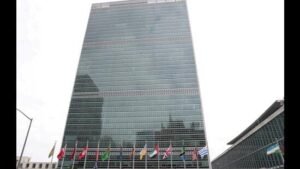
Few would connect the bleaching of coral reefs to the spread of a deadly virus. Yet the 2013 West African Ebola outbreak, which killed more than 11,000 people, can be traced back, in part, to the slow unraveling of an ecosystem beneath the waves.

Across West Africa’s coastline, coral reefs once thrived as vibrant underwater cities. They sustained fisheries, fed millions, and buffered communities from the forces of the sea. But over the decades, overfishing, rising ocean temperatures, and pollution began dismantling this natural foundation. As the reefs died, fish populations plummeted. Coastal families who once depended on the ocean for food and income suddenly faced scarcity. The ocean could no longer sustain them, and so they turned inland.
A new form of survival took hold — the bushmeat trade. Monkeys, antelopes, and fruit bats became the new staples of protein. For many, it was not a matter of preference but of necessity. Yet this shift blurred a dangerous boundary between humans and wildlife. Fruit bats, natural carriers of the Ebola virus, entered the human food chain. With every hunt, every meal, the risk of zoonotic spillover grew. When the first case appeared in Guinea in 2013, few could see the wider pattern; coral loss led to fish shortages, which grew into bushmeat dependence, eventually causing animal transmission. The epidemic that followed tore through West Africa, overwhelming health care systems and communities alike. But its roots lie in something far older and deeper, the breakdown of ecological balance.
Ebola’s legacy reveals an uncomfortable truth: Environmental sustainability is not just conservation, it is disease prevention. When coral reefs collapse, fish vanish. When forests are destroyed, viruses move. When ecosystems fail, humans pay the price. Our exploitation of natural systems, from oceans to wildlife, creates the very conditions in which new pathogens thrive. The same forces driving the climate crisis and biodiversity loss are silently shaping the future of global health.
The story of coral depletion and Ebola is not one of coincidence, but connection. It reminds us that the boundaries between environmental, social, and medical crises are porous, each feeding into the other. Pandemics don’t appear suddenly; they unfold over years of ecological neglect. If we want to prevent the next global health disaster, we must start where the balance was first lost, in the reefs, forests, and rivers that sustain us all. Because the front lines of public health are not hospitals, they are habitats.
The views expressed are personal




